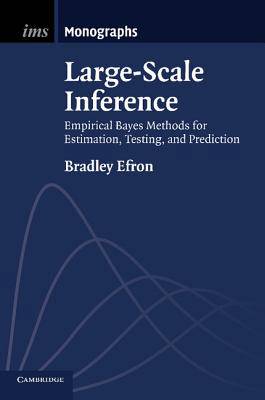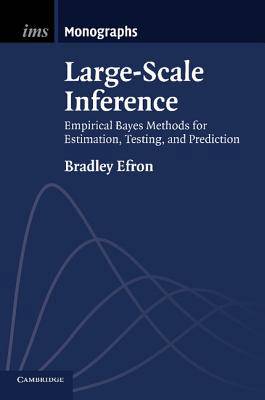
- Afhalen na 1 uur in een winkel met voorraad
- Gratis thuislevering in België vanaf € 30
- Ruim aanbod met 7 miljoen producten
- Afhalen na 1 uur in een winkel met voorraad
- Gratis thuislevering in België vanaf € 30
- Ruim aanbod met 7 miljoen producten
Zoeken
€ 77,95
+ 155 punten
Omschrijving
We live in a new age for statistical inference, where modern scientific technology such as microarrays and fMRI machines routinely produce thousands and sometimes millions of parallel data sets, each with its own estimation or testing problem. Doing thousands of problems at once is more than repeated application of classical methods. Taking an empirical Bayes approach, Bradley Efron, inventor of the bootstrap, shows how information accrues across problems in a way that combines Bayesian and frequentist ideas. Estimation, testing, and prediction blend in this framework, producing opportunities for new methodologies of increased power. New difficulties also arise, easily leading to flawed inferences. This book takes a careful look at both the promise and pitfalls of large-scale statistical inference, with particular attention to false discovery rates, the most successful of the new statistical techniques. Emphasis is on the inferential ideas underlying technical developments, illustrated using a large number of real examples.
Specificaties
Betrokkenen
- Auteur(s):
- Uitgeverij:
Inhoud
- Aantal bladzijden:
- 276
- Taal:
- Engels
- Reeks:
- Reeksnummer:
- nr. 1
Eigenschappen
- Productcode (EAN):
- 9781107619678
- Verschijningsdatum:
- 14/01/2013
- Uitvoering:
- Paperback
- Formaat:
- Trade paperback (VS)
- Afmetingen:
- 150 mm x 224 mm
- Gewicht:
- 439 g

Alleen bij Standaard Boekhandel
+ 155 punten op je klantenkaart van Standaard Boekhandel
Beoordelingen
We publiceren alleen reviews die voldoen aan de voorwaarden voor reviews. Bekijk onze voorwaarden voor reviews.











